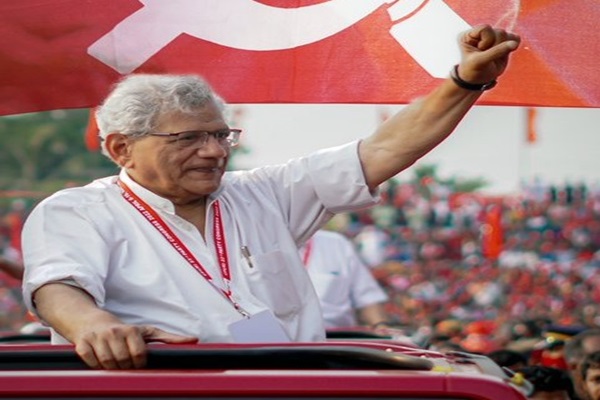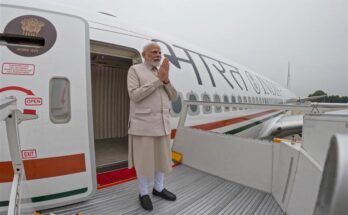
Team News Riveting
New Delhi, September 12
Sitaram Yechury, the fifth general secretary of the Communist Party of India (Marxist), breathed his last on Thursday afternoon at the All India Institute of Medical Sciences (AIIMS) in New Delhi.
The 72-year-old Communist stalwart was wheeled in following a chest infection on August 19. Since then his condition deteriorated. The family donated his body to AIIMS for teaching and research.
When Indira Gandhi imposed the Emergency in 1975, Yechury hid in a hospital room where his father, an engineer and orthodox Brahmin, was in recuperating post-surgery. Though he was arrested later, he slipped through the cracks on a technical flaw and fled to Kurnool in Andhra Pradesh. Despite family pressure Yechury remained committed to his ideology.
Yechury cut his teeth in politics as a student in JNU where he met Prakash Karat. Their differences on several issues came out in the open that included Yechury in 1996 backing Jyoti Basu as the next Prime Minister of India. More than a decade later when the CPM-Congress ties hit rock-bottom over the Indo-US nuclear deal, Yechury had tried a compromise formula that was agreeable to the Congress as well. But Karat, then general secretary of the party, would not budge from his stand.
When he took over as the CPM’s fifth general secretary, some of his own party comrades were sceptical of Yechury’s proximity to the Congress, especially the Gandhis. One such comrade had remarked in Vishakhapatnam that Congress would be the future of the CPM. Congress leader Jairam Ramesh had once taken a dig at Yechury calling him the “general secretary” for both the Congress and the CPM. “And sometimes, his influence in the Congress is more than in the CPM.”
Many in the Congress and CPM would whisper about Yechury’s increasing influence on Congress leader Rahul Gandhi, which left another key ally, Mamata Banerjee, furious.
However, Yechury was the key person to remove Indira Gandhi was the Vice Chancellor of JNU. On the eve of the 49th anniversary of the Emergency, Yechury himself narrated the story:
“She had lost the elections but remained as the chancellor. We said this cannot continue because of the Emergency and excesses committed. We wrote a four-page chargesheet and with all the students went to her residence at Willingdon Crescent. During the Emergency arrest warrants were pasted on the doors of the hostel rooms (in JNU) for students who were in hiding. We wanted to paste the memorandum at her door. When we reached, VC Shukla asked us, what is this? I told him we have come to give her this memorandum. He went inside and on coming out a little later, said only five could come. I said no. All the students will enter. He went inside again. This time we saw Madam Gandhi was approaching the gate. Everybody was surprised. She asked what was this about? I told her I am the president of the JNU Students’ Union and we have come to hand over this memorandum. There was no police bandobast. I told her we want you to resign as chancellor. It will not be correct for you to continue. She asked me to read out the memorandum. We were in a fix as the memorandum had a lot of gaalis (abuses). I read it. She heard all of it with a constant smile on her face.”



